#mikhail mikhailovich
Explore tagged Tumblr posts
Text

Grand Duke Mikhail Mikhailovich and his morganatic wife, Sophie, Countess de Torby, in costume.
60 notes
·
View notes
Photo
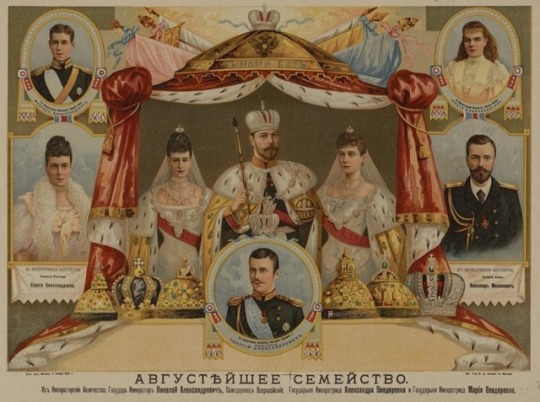
“The August Family” poster or possibly a calendar cover (?)
#Romanov#Russia#Nicholas II.#Alexandra Fyodorovna#Maria Fyodorovna#Xenia Alexandrovna#Alexander Mikhailovich#Georgiy Alexandrovich#mikhail Alexandrovich#olga Alexandrovna
122 notes
·
View notes
Text

The imperial family on the skating rink in the garden of the Anichkov Palace 1890.
Tsar Alexander III, Tsesarevich Nicholas Alexandrovich, Grand Duchess Xenia Alexandrovna, Grand Dukes George Alexandrovich, Mikhail Alexandrovich, Alexander Mikhailovich and Sergei Mikhailovich.
#alexander iii#tsesarevich nicholas#george alexandrovich#xeina alexandrovna#mikhail alexandrovich#Alexander mikhailovich#sergei mikhailovich#1890s#st petersburg#anichkov palace#romanovs#russian empire#michael alexandrovich#tsar alexander iii#tsar nicholas ii#grand duke george#grand duke michael
113 notes
·
View notes
Text
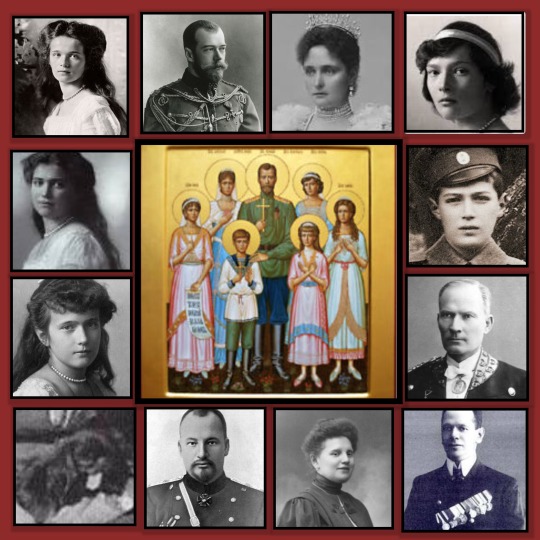
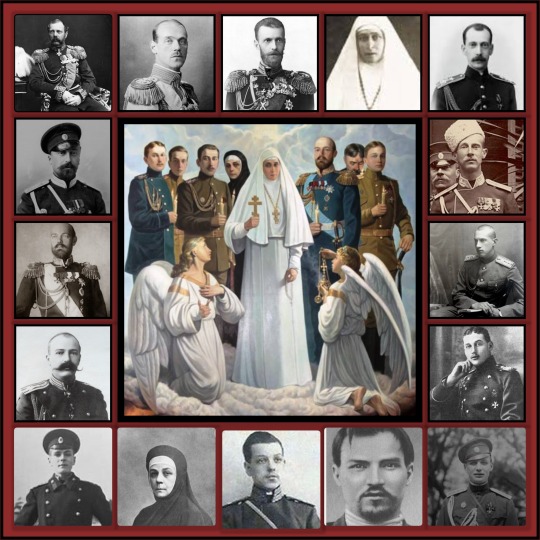
The Romanov Martyrs
I wanted to put together a little memorial that included all the members of the Romanov Family (as well as the members of their staff) that were murdered by the Bolshevik terrorists. This seems like a good week to keep them in our minds. Although we love and mourn the children especially, there were others we cannot forget.
Tsar Alexandre II was hunted down until finally blown to pieces.
Dowager Empress Maria Feodorovna lost two sons and five grandchildren (no wonder she could not accept they were dead)
Grand Duke Sergei Alexandrovich was also hunted down and blown to pieces
Three Mikhailovichi brothers were murdered
Four Konstantinovichi were murdered, three of them brothers; I cannot imagine what their mother, Grand Duchess Elizabeth Mavrikievna, went through...and so on.
May they rest in peace.
#russian history#imperial russia#romanov family#Nicholas II#Tsar Alexander II#Empress Alexandra Feodorovna#Grand Duchess Elizabeth Feodorovna#OTMAA#Grand Duke Mikhail Alexandrovich#Grand Duke Sergei Alexandrovich#Grand Duke Pavel Alexandrovich#Grand Duke Nicholas Mikhailovich#Grand Duke Georgiy Mikhailovich#Grand Duke Sergei Mikhailovich#Grand Duke Dmitry Konstantinovich#Prince Ioann Konstantinovich#Prince Igor Konstantinovich#Prince Konstantin Konstantinovich#Dr. Eugene Botkin#Anna Demidova#ivan karitonov#Akexei Trupp#Sister Varvara Yakolevna#Feodor Remez#mr. johnson
75 notes
·
View notes
Note
First of all, I wanted to thank you for the interesting posts and photos you publish💋❤
My question is, did tsar Nicholas II ever meet his nephew George, son of grand duke Michael ?
or did OTMA ever meet their cousin?
Hello anon! Thank you for the compliments! I’m so glad you enjoy my blog! So for a brief rundown of who this George person is, he was OTMAA’s uncle (and Nicky’s brother) Grand Duke Mikhail Alexandrovich’s son from his morganatic marriage to Countess Natalia Sergeyevna Brasova. Mikhail and Natalia cherished their young son and Mikhail and Georgy met several times before Misha was executed in 1918.



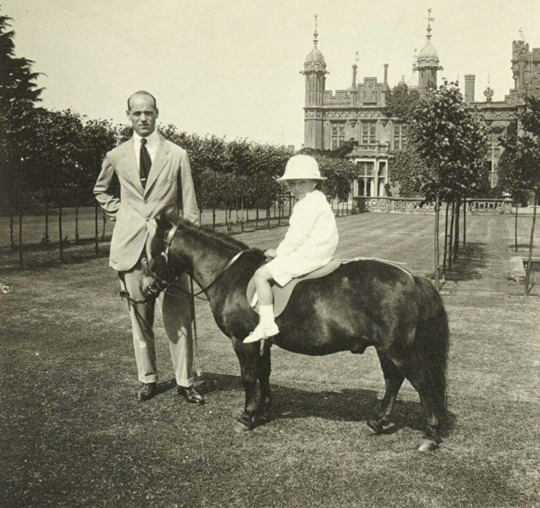

Georgy was born on July 24th 1910 when Olga was 14, Tatiana was 13, Maria was 11, Anastasia was 9, and Alexei was 5. Because Georgy was the product of a morganatic marriage, a marriage not getting approval from the monarch, and going against the laws of the Russian Orthodox Church, Nicholas most likely would not have allowed his children to meet their cousin.
Nicholas was a VERY faithful man and took morganatic marriages VERY seriously. He was very close to Misha and felt probably very betrayed by his actions. Because of this, Nicky would’ve not wanted to meet Georgy and would’ve kept his children away from him. I’m not 100% sure if they did happen to meet in the 7 years before they were killed. There is a chance though!
I think that @otmaaromanovas could go digging a lot more into if they ever possibly had met because she is a queen when it comes to letters and diaries!
Thank you for asking and sorry this took a long time to answer!
#answered ask#olga nikolaevna#tatiana nikolaevna#maria nikolaevna#anastasia nikolaevna#otma#alexei nikolaevich#otmaa#romanov#tsar nicholas ii#mikhail alexandrovich#Georgy Mikhailovich count Brasov#george mikhailovich#george Mikhailovich Brasov#georgy Mikhailovich brasov#natalia brasova
23 notes
·
View notes
Photo
Portraits of Members of the Russian Imperial Family by Valentin Serov
Valentin Serov is one of my favorite Russian painters. He came from a family of artists and had a long and successful career, during which his style as a painter and politics changed. Regardless, we "Romanov Obsessives" are familiar with most of his excellent portraits of the Romanovs, but it is worth it to present them here. It is always a pleasure to look at good art.








Portraits:
1 and 2: Emperor Nicholas II; Trivia regarding the portrait where Nicholas appears in blue/grey uniform: When asked about the true color of Nicholas' eyes, the painter said that they were the color of the uniform and background. Another anecdote: When Nicholas saw the painting, he kept on asking if it was "finished" as he was not quite used to the more modern, post-impressionistic style in which the painter executed it.
3 and 4: Emperor Alexander III
5 and 6: Grand Duke George Mikhailovich and his father, Grand Duke Mikhail Nikolaevich
7 and 8: Grand Duchess Olga Alexandrovna and Grand Duke Paul Alexandrovich
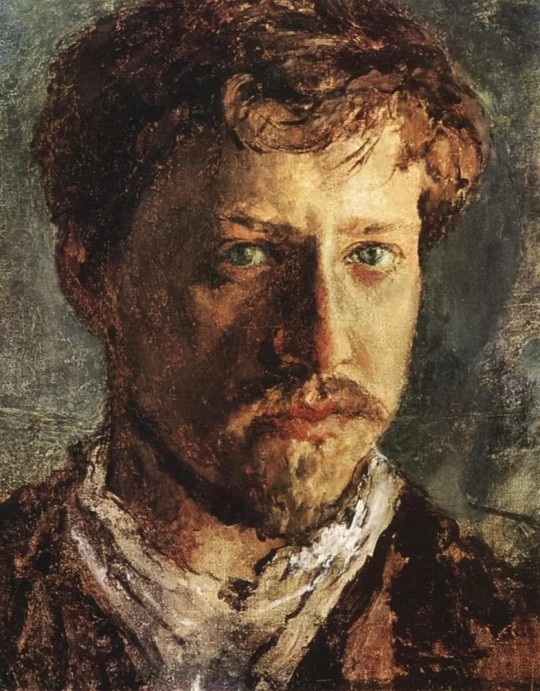
Valentin Serov, Self-Portrait
Valentin Alexandrovich Serov (19 January 1865 – 5 December 1911) was a painter and one of the premier portrait artists of his era. He was from the Russian Empire
#russian history#romanov dynasty#Russian art#Valentin Serov#Nicholas II#Alexander III#Grand Duke George Mikhailovich#Grand Duke Mikhail Nikolaievich#Grand Duchess Olga Alexandrovna#Grand Duke Pavel Alexandrovich#russian painting
84 notes
·
View notes
Text
ALEXANDER VOLKOV
MAIN INFO
Name: Alexander Volkov Mikhailovich
Alias: Alex
Age: 23 years old (for the time of 2024)
Orientation: Heterosexual
Native language: Kazakh
Other languages: English, Russian
Nationality: Kazakh
Date of birth: June 30, 2001
Rank: Lieutenant
Place of birth: Karaganda city, Kazakhstan
Eyes: grey
Hair color: dark brunette
Height: 174 cm/5`8
Weight: 85 kg
Body type: strong, athletic
Diseases: heart failure
REALITIONSHIPS/FAMILY
Relationships: -
Father: Mikhail Volkov Gennadievich
Mother: Tatiana Volkova/Verbitskaya (maiden name) Ivanovna (dead)
Sister: (Name is a secret) Volkova Mikhailovna
SKILLS AND ABILITIES
Fighting style: Ranged combat
Weapon: L96A1 rifle (used with a silencer)
Special skills: good eyesight, fast running
AFFLIATIONS
A former soldier of the FSPA (Federal Special Purpose Agency), left after an accident. He currently serves in Task Force 141
INJIRIES
A burn on half of his face after the explosion of a rifle, a scar on his arm after the explosion, several scars on his body
PERSONALITY AND TRAITS
Ambivert: in some situations, he can be energetic and sociable, and in others quiet and withdrawn. But in general, he is close to the behavior of an introvert and prefers to be alone, but if necessary, he can talk to someone.
Surface reading: he is able to quickly read the material and memorize information just as quickly
PERSONAL PREFERENCES
Favorite book: "The Master and Margarita" by Mikhail Bulgakov
Favorite color: monochrome, dark shades, pastel shades
Bad habits: smoking
Favorite drink: does not drink alcohol, tomato juice
Favorite food: shawarma, vegetable salads, dumplings, instant noodles, spicy dishes
Favorite musicians: BI – 2, VULGAR MOLLY, 2rbina 2rista, NERVES
FUN FACTS
He is a programmer by education, but he needed this specialty for his diploma. After completing his studies, he joined the army
He cooks well, if he is in a good mood, he can cook delicious food. He hates eating in the army canteen, which is why he prefers to cook something himself in a hurry, such as noodles or dumplings
Very attentive. Can notice things that others don't notice
Copes poorly with stress. Let him always have a stony face, but he can easily snap at someone
Respects people with high rank
He can use people for his own benefit
BACKGROUND STORY
Alex was born into a single-parent family. His father divorced his mother before he was born. His older sister helped her mother as much as she could and studied at the same time. When Alex was born, his mother was glad to see him, because an heir and a long-awaited son were born. Everything was fine until the age of 12, until the tragedy happened. His mother died at work during a fire. After that, he was sent to an orphanage, from where his sister decided not to take him away because of her personal injuries after his father. After 18, he was kicked out of the orphanage and given an apartment in a more or less normal condition, where he lived while studying and worked in a cafe for a low salary.
When he was 19, a man came to him who offered him a job at the agency where his mother died. When he found out what money they promised him, he immediately agreed. He was an excellent soldier, and in particular a sniper. It may sound silly, but he was the best sniper. That was the end of his skills, he was bad at close combat and therefore decided that he would work from afar.
Of course, there were those who envied him. They envied his luck, because it cost him almost nothing to get to this place, while others were not so "chosen" and they had to gnaw out a place for themselves here. Unknown people decided to get rid of him, and therefore seriously framed him during one of the missions.
During the mission, as usual, Alex took a comfortable position to get a better view from above and cover his own. His task was one, to remove people who would interfere. Shot after shot, everything went like clockwork. But after another shot, the rifle exploded in his hands, thereby hitting the floor of his face and his left eye.
These few hours were like a blur: screams, gunshots, pain, hospital and white light. This event was deposited deep in his head, it's hard to forget. Those months of recovery were difficult both mentally and physically. As a result, he almost completely lost sight in his left eye and his face was disfigured by a large burn. Due to the injury, he constantly wears the darkest sunglasses possible so as not to attract attention to himself once again. After such an event, he immediately resigned, because he did not want to put his life on the brink again.
After his dismissal, he worked from time to time as a mercenary, if someone needed his support, because there were people who heard and knew where he left from. He has no friends or acquaintances, which is why he is very withdrawn into himself. Some time later, an unknown person, as she later introduced herself, Kate Laswell, wrote to him. She offered him a job, helping a certain group in one case by promising a good sum, to which Alex of course agreed.
At the end of their collaboration, Price liked Alex, there would be no extra hands in the team, and invited him to work with them. Alex, of course, thought about his proposal, but still agreed.
APPEARANCE

#cod#cod mw2#cod oc#oc x canon#oc art#original character#call of duty#cod original character#artwork#digital artist
20 notes
·
View notes
Text
dmitri
link to the latest art of dmitri
this post is simply called dmitri, and this is hopefully everything you need to know about them! or just some fun facts lol
(this was sitting in draft since SUMMER, and since there is another rise of ocs in supablr, i thought this would be a good opportunity to revise and post this)
biography
full name: dmitri mikhailovich sokolov
pronouns: he/they
sexuality: bisexual
gender: genderfluid
age: 16 (debut), 17 to 18 (super league junior career), 19 to early 20s (post-super league junior)
birthday: may 23
height: 191 cm/6'3 ft
nationality/citizenship: russian-south african
ethnicity: russian + cameroonian
residence(s): st. petersburg, russia (birthplace), johannesburg, south africa (permanent), toronto, ontario, canada (for uni)
language(s): russian, french, english, afrikaans (fluent in first three, limited proficiency in afrikaans)
significant other: hiram rochichaud-power
family
father: mikhail sokolov
mother: nadine bahanag
sibling(s): matvey (older brother; oldest), avdotya (older sister; middle)
pet(s): squeaky (white maine coon cat)
super league junior profile
team: invincible united junior fc
jersey number: 17
position: midfielder + captain
award(s): rookie of the year, star of the match (x10), slj captain of the year (x2)
post-secondary profile
type: university
location: toronto, ontario, canada
program: fashion design - bachelor of design
varsity sports team: men's ice hockey - goaltender
extracurricular clubs: francophone club, visual arts club, cameroonian student association, literature club
possible future career: fashion designer, fashion journalist, or dressmaker
hobbies and interests
ice hockey
soccer
visual art (won a few high school awards for his artworks)
creative writing
sewing and designing
flute
dance (contemporary ballet)
russian and french literature
cooking (not great at it so they call their sister for help lol)
making mocha
strawberries
extra stuff about his family because they all have interesting lives lol
mikhail (father), he/him
a therapist, specializing in cognitive behavioural therapy and psychotherapy, and is among the best psychologists in johannesburg
did practicum at the oasis, and used to work for cognito fc for a year
ex-ballet dancer from a wealthy (and horrible) classical ballet family in moscow
other interests include dance (for old time sake and to pass on the sokolov techniques to his kids), sudoku, pilates, cooking
nadine (mother), she/her
a corporate lawyer working at one of south africa’s high-ranking law firms
cousin of el matador’s female lawyer (both also attended the same law school)
during her youth, she played defence for the u-18 cameroon's women's national soccer team
other interests include yoga, cardio, playing piano, reading classical books
matvey (brother), he/him
a flute player studying at a prestigious conservatory in london, england
has a huge platform on various social media for showcasing his passion for music
part-time job as a music tutor
other interests include reading philosophical literature, working out, photography, playing ice hockey at a recreational league (defender), dance
avdotya (sister), she/her
a food science major and a culinary enthusiast
was a contestant (two-time champion) at a national (russian) junior chef competition
currently co-president for her university’s culinary club
other interests include painting, playing intramural ice hockey (forward), dance, weightlifting, journaling
squeaky (cat), he/him
a male cat who is very talkative and friendly
was adopted from a shelter in johannesburg at 5 months olds
loves to watch the birds from inside the house, but never chases them if outside
dislikes eating fish itself, will eat if the fish is eaten with something else in the bowl
the kids love hockey and dance sm
#he’s kinda half strikas oc half my own universe oc idk lol#supa strikas#supablr#yanxious ocs: dmitri sokolov#yanxious ocs#supa strikas ocs
14 notes
·
View notes
Note
drop the full name
I did. Mikhail Ivanovich Nabokov. Named after my father Ivan Mikhailovich Nabokov and my grandfather Mikhail Daniilovich Nabokov.
8 notes
·
View notes
Text
It is great to see handsome Miche-Miche and beautiful Sophie in color!
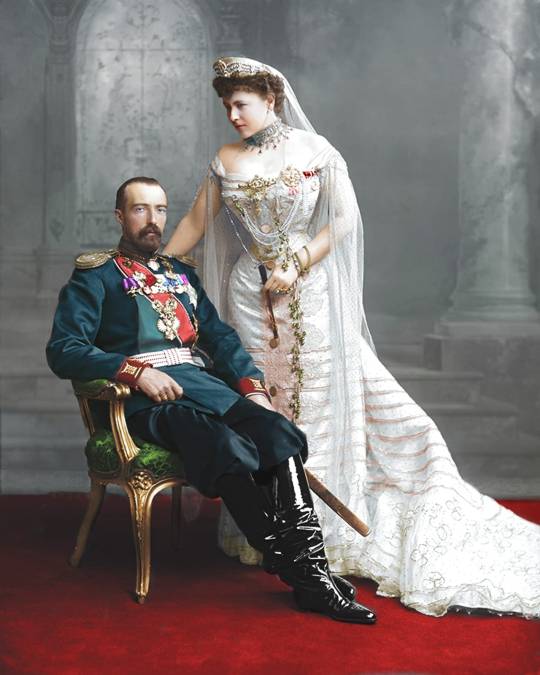
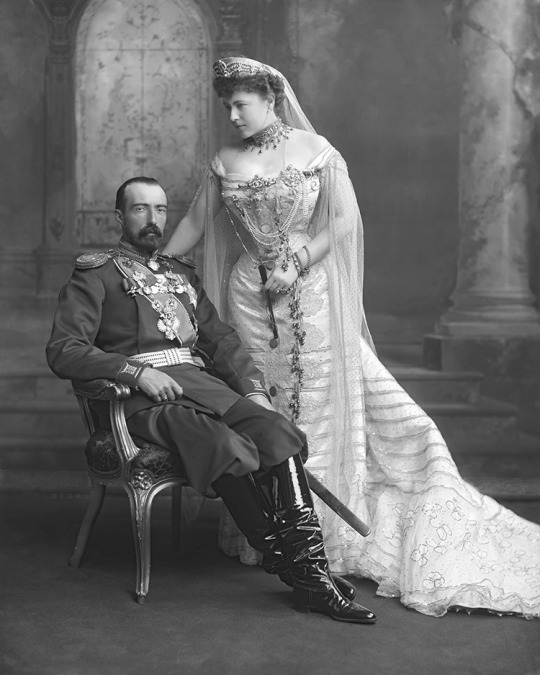
Grand Duke Michael Mikhailovich and his wife Sophie de Torby for the coronation of Edward VII, August 1902
#russian history#romanov dynasty#vintage photography#Grand Duke Mikhail Mikhailovich#miche miche#Sophie de Torby
33 notes
·
View notes
Text


Grand Duke Mikhail Mikhailovich and his children.
#romanov#mikhailovichi#mikhail mikhailovich#nada de torby#zia de torby#michael de torby#the tatler#my collection
33 notes
·
View notes
Text

Prince George Mikhailovich Brasov on his motorcycle 1920s
30 notes
·
View notes
Text
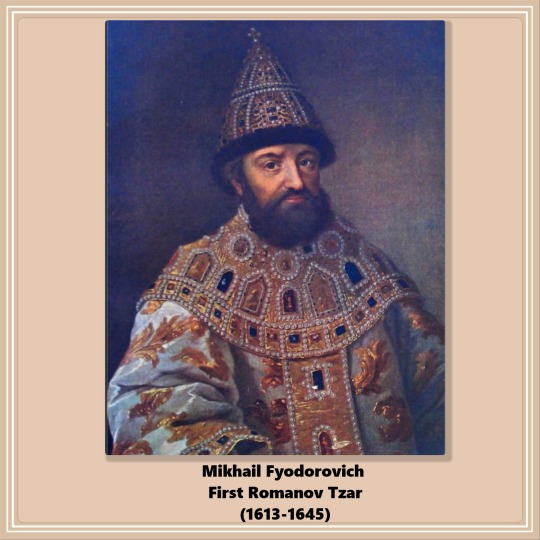




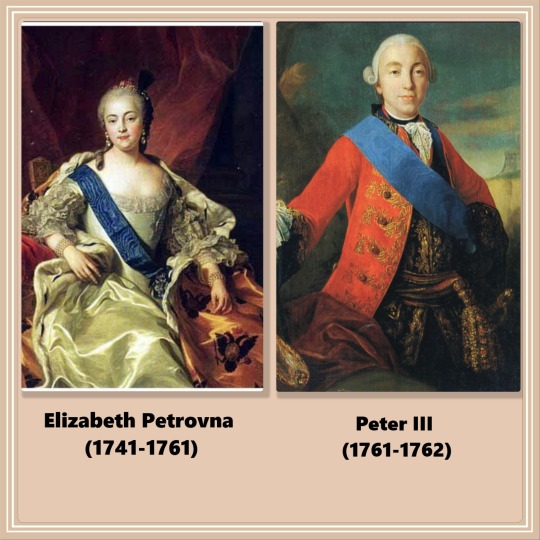

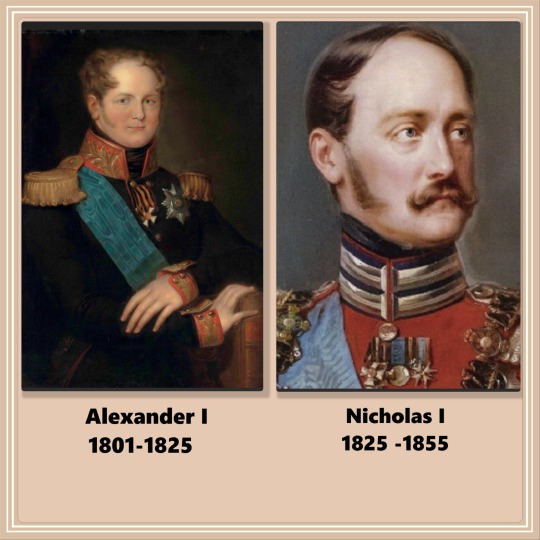

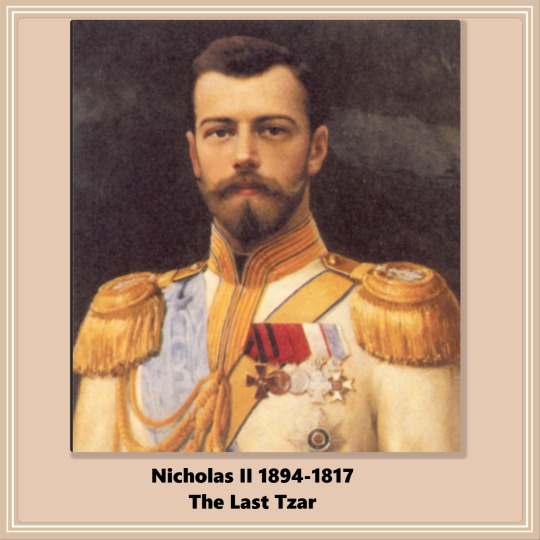
👑The Romanov Dynasty
The Grand Duchy of Moscow under Prince Ivan III was the first unified state on Russian territory. With him began the Rurikid Dynasty (the Rurikid had been around for a long time along hoards of tartars).
The Rurikid ruled from the 1400s until the 1600s. Ivan III can be considered the founder of Russia. While the Rurikid were in power, the Romanovs were boyars (nobles) in their courts. When the Ruriks became extinct, the Romanovs took over. The "Zemsky Sorbor" (a rudimentary parliament) elected Mikhail Feodorovich as the first Romanov Tzar.
The direct male line of the Romanovs ended with Elizabeth of Russia, who was childless. Her nephew Peter III, a member of the House of Holstein-Gottorp (a cadet branch of the German House of Oldenburg that reigned in Denmark), ascended to the throne and adopted his Romanov mother’s house name. Descendants after Elizabeth are sometimes referred to as "Holstein-Gottorp-Romanov."
The above is a gross oversimplification of a very complex course of events.
Highlights about each Romanov Tsar/Tsarina:
👑Mikhail Feodorovich (1613 - 1645): First Romanov Tsar
👑Alexei Mikhailovich (1645 - 1676): Encouraged trade and cooperation with Europe. Father of Peter the Great
👑Feodor III (1676 - 1682): Had very poor health and spent most of his reign in bed
👑Peter I and 👑 Ivan V (1689 - 1785): It was complicated. The two of them were Tsars under the regency of their older sister Sophia.
👑Peter I (1689-1725): Reformed Russia's politics, government, and culture. Made Russia a military power.
👑Catherine I (1725-1727): At the time of Peter the Great's death, the mechanism for succession consisted of the Tsar selecting his successor, but Peter did not elect one before dying. His wife became the Tsarina, but others governed through her.
👑Peter II (1727-1730): Peter's grandson; ascended the throne at 11 and died at 14. The "Privy Council" or "Soviet" ruled through him.
👑Anna Ioannovna (1730-1740): Daughter of Peter's half-brother Ivan. The Privy Council invited her to rule (wanting her to be a puppet), but she disbanded them and ruled herself successfully.
👑Ivan VI (1740-1741): One-year-old son of Ana's niece. She left the throne to him, expecting his mother to govern. Elizabeth, daughter of Peter the Great, deposed him (and his mother.)
👑Elizabeth Petrovna (1741-1761): Last Russian on the Russian throne; her twenty-year reign was successful.
👑Peter III (1761-1762): Grandson of Peter the Great and next in line for the throne after Elizabeth. Ruled for only half a year before being deposed by his wife, Catherine. He was murdered soon after the coup d’etat.
👑Catherine the Great (1762-1796): Her accomplishment went from the Empire’s territorial expansion to political development to the proliferation of sciences. However, the Empire had an enormous external debt by the end of her reign.
👑Paul I (1796-1801): Paul, the son of Catherine the Great and Peter III, became Emperor at 42 after the death of his mother. He started a lot of major military and political reforms. Paul was murdered in a coup d'etat. Paul decreed house laws for the Romanovs (the Pauline laws) – among the strictest in Europe – which established semi-Salic primogeniture and required Orthodox faith for the monarch and dynasts
👑Alexander I (1801-1825): During his reign, Russia defeated Napoleon's forces (which got as far as Moscow in their attempt to conquer Russia.) There was also great development in culture and arts.
👑Nicholas I (1825-1855): Paul I’s third son, younger brother of Alexander. Started railroad construction in Russia, boosting industrialization. Codified Russian laws and reformed finances.
👑Alexander II (1855-1881): His major reforms included the peasant emancipation of 1861, military reform, and the introduction of new types of self-governing village societies and more. Unfortunately, he fell victim to a terrorist after five attempts.
👑Alexander III (1881-1894): Russia didn’t enter any wars in his time. His domestic policy was conservative. He amended the Pauline laws. The economy flourished. But the revolution was brewing below the surface.
👑Nicholas II (1894-1917): His policies were unsuccessful. Established the first official Duma in 1905, but it was too little too late. With the advent of WWI, the Russian Empire ceased to exist. He abdicated. (gcl)
Sources:
Panov, A., Delaroche, P., & Abramuchkin, Y. (2021, July 31). The Complete List of Russian Tsars, Emperors, and Presidents. Russia Beyond. Retrieved June 20, 2023, from https://www.rbth.com/history/334065-complete-list-of-russian-tsars-emperors-rulers-presidents
#russian history#imperial russia#romanov dynasty#Nicholas II#Alexander III#Alexander II#Alexander I#Catherine I#Catherine II#Nicholas I#Paul III#Elizabeth Petrovna#Mikhail Feodorovich#Alexei Mikhailovich#Feodor III#Ivan VI#Peter I#Peter II#Peter III#Anna Ioannovna#Romanov Tsars#gcl
37 notes
·
View notes
Photo
There are four individuals I do not recognize. Actually, this is an impressive gathering of Grand Dukes and Duchesses. I have included all the names of individuals in the group that I recognize on the tags.
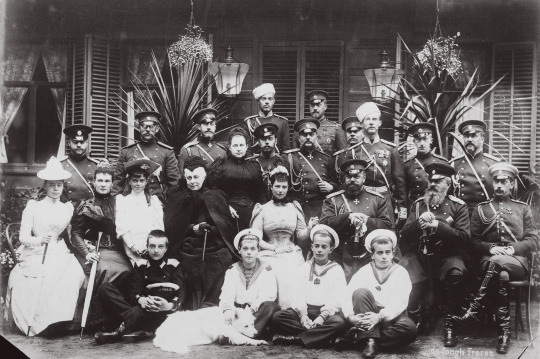

Emperor Alexander III surrounded by family
#Grand Duke Konstantin Konstantinovich#Grand Duke Sergei Mikhailovich#Grand Duke Nikolay Nikolaevich#Grand Duke Vladimir Alexandrovich#Grand Duke Dmitry Konstantinovich#Duke Peter of Oldenburg#Grand Duchess Xenia Alexandrovna#Grand Duchess Maria Pavlovna the Elder#Grand Duchess Helena Vladimirovna#Grand Duchess Alexandra Iosifovna#Empress Maria Alexandrovna#Emperor Alexander III#Grand Duke Mikhail Nikolaievich#Grand Duke Pavel Alexandrovich#Grand Duke Alexey Mikhailovich#Grand Duke Mikhail Alexandrovich#Grand Duke Andre Vladimirovich#Grand Duke Boris Vladimirovich#Olga
103 notes
·
View notes
Text

Some time in 1895 or the early months of 1896, the Grand Prince had an encounter that would change all their lives, and seriously damage relationships within the family. He fell in love with Olga von Pistolkors, the wife of a captain in his regiment who was also aide-de-camp to his brother Grand Prince Vladimir. The couple had three young children: nonetheless, Pavel began an affair with Olga. It was a serious abuse of his position, both as Eric von Pistolkors' commanding officer and as a member of the reigning family. In the summer of 1896 he was moved to a different regimental family, but if this had anything to do with the affair it came too late. In January 1896 Olga gave birth to a son, who was not her husband's child. Pavel had no intention of ending the affair and he must have known that sooner or later it would precipitate a crisis. He began to take more interest in Marie and Dmitri and there were no visits to Ilinskoe in 1897 and 1898, instead he took the children to Europe.
He let go of the memory of Alexandra; her clothes, untouched since her death, were sorted out and disposed of, while Marie was moved into her mother's rooms. Pavel was resolved to marry Olga, whose own marriage had effectively ended with the birth of their son, but he knew there would be problems. His cousin Mikhail Mikhailovich had been banished for contracting an unsuitable marriage without permission, and Mikhail's wife was not even a divorcee. In 1900 Pavel began to sound his brothers out on the idea of a morganatic marriage, but he also bought a house in Paris from the Yusupov family. Then he discussed his plans with his nephew, the young Tsar.
Romanov Autumn - Charlotte Zeepvat
#paul alexandrovich#romanov#imperial russia#imperial family#royalty#19th century#grand duke#olga paley#vladimir paley
15 notes
·
View notes
Text
OC Questions Tag
Oh, this is a good one! Thanks for the tag @honeybeenrw !
I'm going to do Nikolai (green) and Mishka (blue), since they had a little photo shoot together this weekend and are feeling more inseparable than usual. 😉


Mishka & Nikolai
__________
NAME: Mikhail Petrovich Vasiliev
NICKNAME: Mishka (only for family and close friends)
GENDER: male
STAR SIGN: Aquarius (10 February)
HEIGHT: 196cm
ORIENTATION: bisexual
NATIONALITY/ETHNICITY: Russian / white
FAVOURITE FRUIT: apple
FAVOURITE SEASON: summer
FAVOURITE FLOWER: white clover, roses
FAVOURITE SCENT: freshly-cut grass
COFFEE, TEA, or HOT CHOCOLATE: coffee is his hot drink of choice, but he likes both tea and hot chocolate as well.
AVERAGE HOURS OF SLEEP: 8 hours is his average, but don’t underestimate Mishka’s ability to sleep. Left unsupervised or without setting an alarm, he can sleep for 10-11 hours.
DOGS or CATS: If he had to choose between only those two, it’d be cats. But Mishka is an animal lover and has an affinity for most creatures.
DREAM TRIP: He’d want to go to Chestnut Ridge because he’s fascinated by the desert and he loves to ride.
NUMBER OF BLANKETS: Usually just one. He doesn’t tend to get cold easily.
RANDOM FACT: He has a terrible sense of direction and has extreme anxiety about getting lost anywhere. This is the reason he doesn’t like going to new places by himself. His anxiety about his poor sense of direction makes his ability to navigate even worse, and he’s occasionally been known to full-on panic and even cry during a panic attack when he gets mixed up and finds himself somewhere he didn’t intend to be or can’t find his way back. A situation like this is actually how he and Nikolai met.
__________
NAME: Nikolai Mikhailovich Pavlenko
NICKNAME: Kolya (only for family and close friends); Nik (only for close English-speaking friends)
GENDER: male
STAR SIGN: Sagittarius (18 December)
HEIGHT: 173cm
ORIENTATION: bisexual
NATIONALITY/ETHNICITY: first-generation Canadian (his parents are Russian-Canadians) / white
FAVOURITE FRUIT: blueberries
FAVOURITE SEASON: autumn and winter
FAVOURITE FLOWER: chrysanthemums
FAVOURITE SCENT: peppermint
COFFEE, TEA, or HOT CHOCOLATE: His preference is coffee, but he also likes tea. He’s not a fan of chocolate in general.
AVERAGE HOURS OF SLEEP: He usually gets between 6.5 and 7 hours of sleep a night
DOGS or CATS: He likes most animals but definitely considers himself a cat person.
DREAM TRIP: Nikolai doesn’t like to travel. If he can’t get there by car or bicycle in less than two hours, he’d rather not go. His “dream trip” is just getting far enough away to say he’s out of town, and going camping with Mishka.
NUMBER OF BLANKETS: Usually only one. Mishka is very cuddly in bed and keeps him sufficiently warm. He might use a second blanket if he were sleeping alone.
RANDOM FACT: He’s gifted when it comes to languages. He’s fluent in three languages; Russian, English and French. He also has functional Korean, which he learned from his student Eden’s family, and basic Japanese, which he learned while living in Japan with Eden for nearly a year.
—————
I’ll tag @changingplumbob @ljfoxie @igotsnothing @akitasimblr @holocene-sims @dandylion240 @papermint-airplane and @honeyjars-sims
Feel free to ignore if you’ve already done it or don’t want to. (Also, I don’t mind being tagged more than once 😆)
28 notes
·
View notes